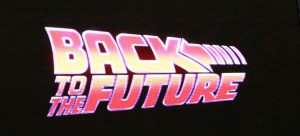The United States Senate is expected to unveil another financial relief package this week, and it will include more than just a stimulus check. The legislation is expected to include several programs and measures to offset the economic recession caused by the coronavirus pandemic. Some of these other measures will have a direct impact on individual Americans, as well.
The centerpiece of the forthcoming stimulus package will undoubtedly be the stimulus check itself for most people. While it is hard to top a direct payment with no strings attached, some of the other things in this bill could have just as much of an immediate impact on Americans. So far, the exact language of the bill has not been revealed, but it is expected sometime early this week. In the meantime, some of the people involved in writing the proposal have hinted at what is coming.
Videos by PopCulture.com
The office is writing the new stimulus package of Republican Senate Majority Leader Mitch McConnell. McConnell has ignored proposals from other senators, as well as a comprehensive bill passed by the U.S. Congress back in May, in favor of writing his own legislation. However, in the last week, various reports indicate that his biggest obstacle has been disagreements with President Donald Trump and members of his administration.
While McConnell and other Republican lawmakers are eager to keep this stimulus package small and limited in scope, the White House has reportedly pushed for bigger payments and broader eligibility. Reports indicate that the president hopes a stimulus check will boost his chances of re-election.
McConnell has set a firm price limit at $1 trillion for his stimulus package — less than half the cost of the CARES Act back in March, which included the first stimulus check. Still, judging by some of the hints that have come out so far, McConnell’s bill will have an array of programs to help Americans in different ways. Here is a look at the benefits we have heard may be included in the bill besides a stimulus check.
Unemployment Enhancement

On Tuesday, the $600 per week unemployment enhancement included in the CARES Act officially expired, leaving many Americans unable to pay for housing, food and other necessities. Hopefully, they will not have to go without this money for long, as Treasury Secretary Steven Mnuchin appeared on CNBC on Thursday to say that another unemployment boost is coming. While it may not be $600 per week, it will be something.
“We’re not going to pay people more money to stay at home than work,” Mnuchin said. Mnuchin added that the plan “will be based on approximately 70 percent wage replacement,” although Republicans may push for a simple fixed amount to be added much like last time, albeit lower than $600. CNBC reported that it may be a $100 or $200 enhancement.
Return-to-work Bonus
Republicans are eager to create incentives for Americans to go back to work, including Sen. Rob Portman’s proposal for a return-to-work bonus. The plan would use the same infrastructure that distributes unemployment checks to pay laid-off workers $450 per week for their first few weeks back on the job.
This idea has been in discussion since May, and it may be one of the less likely provisions to make the final cut in McConnell’s bill. For one thing, it flies in the face of all public health officials’ advice, as Americans should not be returning to in-person work right now unless it is essential. The point of many other stimulus programs is to create incentives for people to stay at home and businesses to stay closed, to slow the spread of COVID-19.
This might make Portman’s plan too difficult to sell and too easy a target for criticism. According to a report by The Washington Post, Portman’s plan has fallen by the wayside in discussions among lawmakers.
Bigger Paycheck

A slightly more likely plan would be a payroll tax cut program that would result in employees getting bigger paychecks in most cases. Republicans have been strongly in favor of payroll tax cuts — especially the president. It would cut payroll taxes for both employers and employees, theoretically creating an incentive for business owners to keep people employed even during this crisis.
The payroll tax cut has also fallen out of popular discussion recently, with even Trump focusing more on the stimulus check itself in his speeches. The idea of a payroll tax cut has been criticized for putting too much faith in business owners to think beyond the bottom line, and for the fact that it would not benefit the 32 million people who are currently unemployed, according to CNET. Still, the program would be cheap for the U.S. government to enact, and it would be a boost for those that are still working.
Rental Assistance
A rental assistance program will help qualifying Americans pay for their housing if their income has been affected by the coronavirus. As it was written in the HEROES Act back in May, it would also put a hold on evictions for at least a year, providing assistance to rental property owners in the meantime.
Republicans are not necessarily talking about a rental assistance program, according to CNET, but it could end up in the final bill anyway. The program was a high priority within the HEROES Act, and it could become a compromise that House Democrats insist on in order to get the bill through. It is essential, as the National Multifamily Housing Council reported that about 5 percent of renters in America could not afford their full rent in April, May and June.
Payroll Protection Program

On Tuesday, McConnell told the Senate that he does intend to include an extension of the Payroll Protection Program in his stimulus package. While it is not a direct payment, it will have a direct impact on many Americans, as this program will allow businesses to stay open and to keep people employed — and perhaps even to hire some people back.
Again, experts question how great the impact of the Payroll Protection Program (PPP) really is on individual Americans, and if it is worth it. Brookings Institution economist Joshua Gotbaum wrote: “Overall PPP hasn’t preserved many paychecks. A careful study found that PPP-eligible small businesses laid people off just as quickly as other businesses.”
Employee Retention Tax Credit
Yet another program intended to keep people employed rather than boost unemployment is an employee retention tax credit. With this, Republicans intend to clearly reward business owners who keep people working during this pandemic, giving them such a generous tax credit that the IRS may end up owing them money next year.
Once again, this is not a direct payment to individual Americans, but it could have a very tangible impact on the lives of those who will continue working during this time. The Tax Policy Center notes that this idea has bipartisan support, so Republicans may not have to negotiate too hard for it.
Stimulus Check

Finally, as for the stimulus check itself, the payment may be more generous than many Americans feared. While McConnell and other Republicans had talked about smaller payments given to a smaller pool of eligible taxpayers, Mnuchin assuaged those fears in an interview with Newsweek on Thursday.
Mnuchin said that eligibility for the next stimulus check will be nearly identical to the last one — the checks will likely be worth $1,200 to anyone with a gross annual income of $75,000 or less in their last tax filing. From there, the value of the checks will decrease incrementally up to a gross annual income of $98,000, at which point Americans will receive no check at all.
This will undoubtedly be the most exciting part of the bill to most Americans, regardless of the other programs and their efforts to influence the economic recession upstream. McConnell is expected to unveil his new stimulus proposal early this week.








